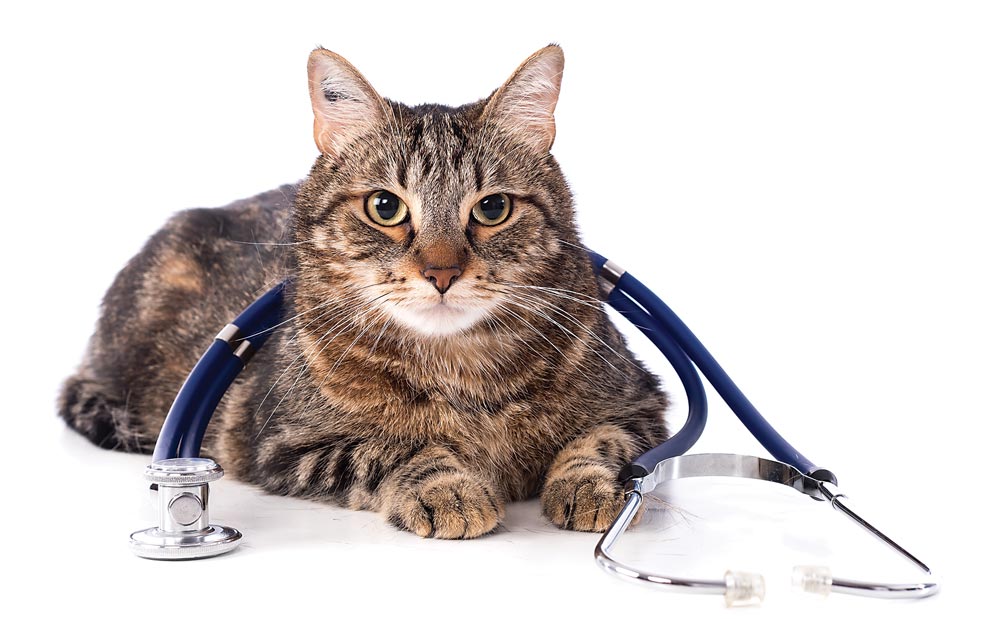Heartworm disease is a potentially fatal illness that poses a significant threat to pets worldwide. Caused by foot-long worms that live in an infected animal’s heart, lungs, and blood vessels, heartworms can lead to severe lung disease, heart failure, and damage to other organs. While dogs are the most common hosts for heartworms, these parasites can also infect other mammal species, including cats, wolves, coyotes, foxes, sea lions, and, even in rare cases, humans.
While heartworm disease in dogs is well-known, many pet owners are unaware of its impact on cats. Unlike dogs, cats are atypical heartworm hosts, and most worms that infect cats do not survive to the adult stage. While cats with adult heartworms typically have only one to three worms, even immature worms can cause significant harm in the form of heartworm-associated respiratory disease (HARD). Additionally, the medication used to treat heartworms in dogs is not effective or safe for cats, making prevention the only way to protect felines from this disease’s effects.
How is heartworm disease transmitted?
The mosquito plays a crucial role in the life cycle of heartworms. In an infected animal, adult female heartworms produce tiny baby worms called microfilaria that move around in the bloodstream. When a mosquito bites and feeds on an infected animal, it picks up these microfilaria. Over the next ten to fourteen days, the worms develop and mature into infective larvae. When the mosquito bites another susceptible animal, the infective larvae are deposited onto the skin and enter the new host through the mosquito’s bite wound. It takes around six months for the larvae to mature into adult heartworms inside the new host. Adult heartworms can survive for up to two or three years in cats (and twice as long in dogs). Since heartworms have a long lifespan, every mosquito season can increase the number of worms in an infected pet.
What are the symptoms of heartworm infection in cats?
Cat heartworm disease can present subtly or it can be quite severe. Common symptoms include coughing, vomiting, a lack of appetite, and weight loss. In some cases, a cat may experience fainting, seizures, difficulty walking, or fluid buildup in the abdomen. In more severe cases, a cat may collapse or even die with little to no warning.
How significant is the risk for my cat? Heartworm disease is a growing concern and can affect cats even in areas where it seems unlikely. Factors such as the relocation of infected animals and the presence of wildlife carriers contribute to the spread of heartworm disease. Heartworm disease has been reported in all fifty states, and the risk factors are unpredictable. The American Heartworm Society recommends testing pets for heartworms every twelve months and giving them preventive all twelve months a year. This approach is known as Think 12.
Is there testing? Heartworm testing is essential as early detection increases the chances of recovery. A veterinarian can perform the test with just a small blood sample to detect the presence of heartworm proteins. Cats are less likely to have adult heartworms, making it harder to detect infection, so screening may include an antigen and antibody test and X-rays or ultrasounds. Prevention is critical, as cats have no approved treatment for heartworm infection.
What if my cat tests positive for heartworm?
Even one or two worms can cause severe illness and may lead to permanent respiratory damage. Because cats are not ideal hosts for heartworms, some infections can resolve on their own, but they can also cause respiratory system damage. Heartworms in the circulatory system also affect the cat’s immune system, causing symptoms like coughing, wheezing, and difficulty breathing. Heartworms can even migrate to other parts of the cat’s body, such as the brain, eyes, and spinal cord. Blood clots in the lungs and lung inflammation can also result when the adult worms die in the cat’s body.
Diagnosis. Diagnosis may involve a physical exam, X-ray, blood count, various blood tests, and an ultrasound.
Treatment. Unfortunately, there is no approved drug therapy for heartworm infections in cats. However, good veterinary care can help stabilize your cat and determine a long-term management plan.
Veterinary care. Spontaneous clearing of heartworms may occur in some cases, but the damage they cause may be permanent. Regular chest X-rays every six to twelve months may be recommended, and small doses of prednisolone may be administered to reduce inflammation. Severe cases may require hospitalization and therapy, including intravenous fluids, drugs to treat lung and heart symptoms, antibiotics, and general nursing care. Surgical removal of heartworms may also be possible in some cases.
Prevention. Heartworm-positive cats are susceptible to new infections, and both outdoor and indoor cats are at risk. Monthly preventives, available in pill or topical form, are essential to keep new infections from developing if an infected mosquito bites your cat again.
While heartworm infection in cats is rarer than in dogs, it is still a threat to our feline friends. Monthly preventative medication is the only way to protect your cat from heartworms, and many monthly flea preventions also contain heartworm prevention.





